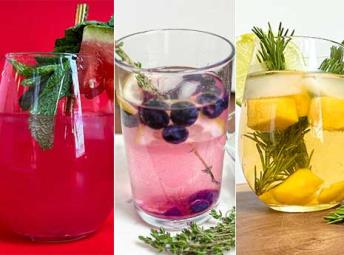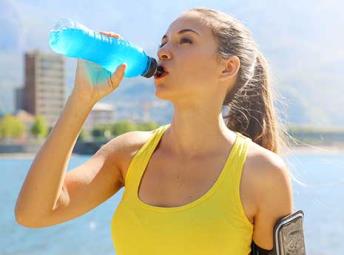
Like many of you, I am now at my race weight. I was thinking the other day about how easy it is for me to eat healthy foods and control portions right now. I'm not depriving myself of baked goods, but I control portion size and/or decrease another treat somewhere else. I know how to eat healthy; I'm doing it. And the best part is my current eating pattern doesn't take iron will or starvation.
Then I start to think, 'eating this way is easy for me—I could keep it up forever.'
The problem is, I've said the last sentence to myself in previous fall and winter seasons. It seems that the multitude of changes that occur in winter create havoc for my nutritional resolve.
Talking about the issue with athletes on my Sunday group ride, others expressed the same problem with winter weight gain. We began theorizing about what changes in fall and winter would make us feel like we cannot control the foods we eat or the portion sizes. Why is it that so many of us gain weight in the winter? Here are some of our thoughts:
- For many, exercise volume decreases not only in sport but in life as well. There are fewer long rides, no lawns to mow and less walking about outside.
- As daylight hours decrease and it gets colder, most of us get less sunlight exposure and Vitamin D. Certainly less daylight can have a serious effect on people with Seasonal Affective Disorder (SAD), but does this change affect everyone's appetite? Or, are there people who don't suffer from SAD but who are more affected by short days? Do hormones play a role?
- Some sources note that low levels of Vitamin D cause weight gain. Should we supplement with Vitamin D through winter? It is possible to overdose on D, however, so caution is a must.
- Do we eat more processed, lower nutrient foods in winter, which causes our bodies to crave more food to make up the deficit?
- Experts say that cold weather increases the appetite for foods that warm the body quickly, like sugars and carbohydrates. Cold salads are less appealing. Creamy clam chowder and buttered cornbread is a much more pleasing choice when it's chilly out.
This short list is a start. The big question is: What can you do about it? What changes can we make, or plan to make, that will keep our winter weight gain in the three-pound range rather than six?
Coming from a rich German heritage, it will be a challenge for me to figure out how to keep the weight gain to a minimum. For some reason, which I can't explain, I think I can do it this year. I feel more confident than ever before.
I hope I'm right.
Bonus Health Tip
Instead of blue cheese and ranch, bhoose balsamic vinaigrette or olive oil and Lucini Dark Cherry Balsamico Vinegar (my best summer discovery). It's delicious and it doesn't take much to give a salad great flavor. You'll end up consuming fewer fat calories on your salads and the calories you do consume will contain the good fats.
 Stay on track with a nutrition plan.
Stay on track with a nutrition plan.
What are your offseason secrets?
Gale Bernhardt was the USA Triathlon team coach at the 2003 Pan American Games and 2004 Athens Olympics. Her first Olympic experience was as a personal cycling coach at the 2000 Games in Sydney. She currently serves as one of the World Cup coaches for the International Triathlon Union's Sport Development Team. Thousands of athletes have had successful training and racing experiences using Gale's pre-built, easy-to-follow cycling and triathlon training plans. Let Gale and Active Trainer help you succeed.







Discuss This Article